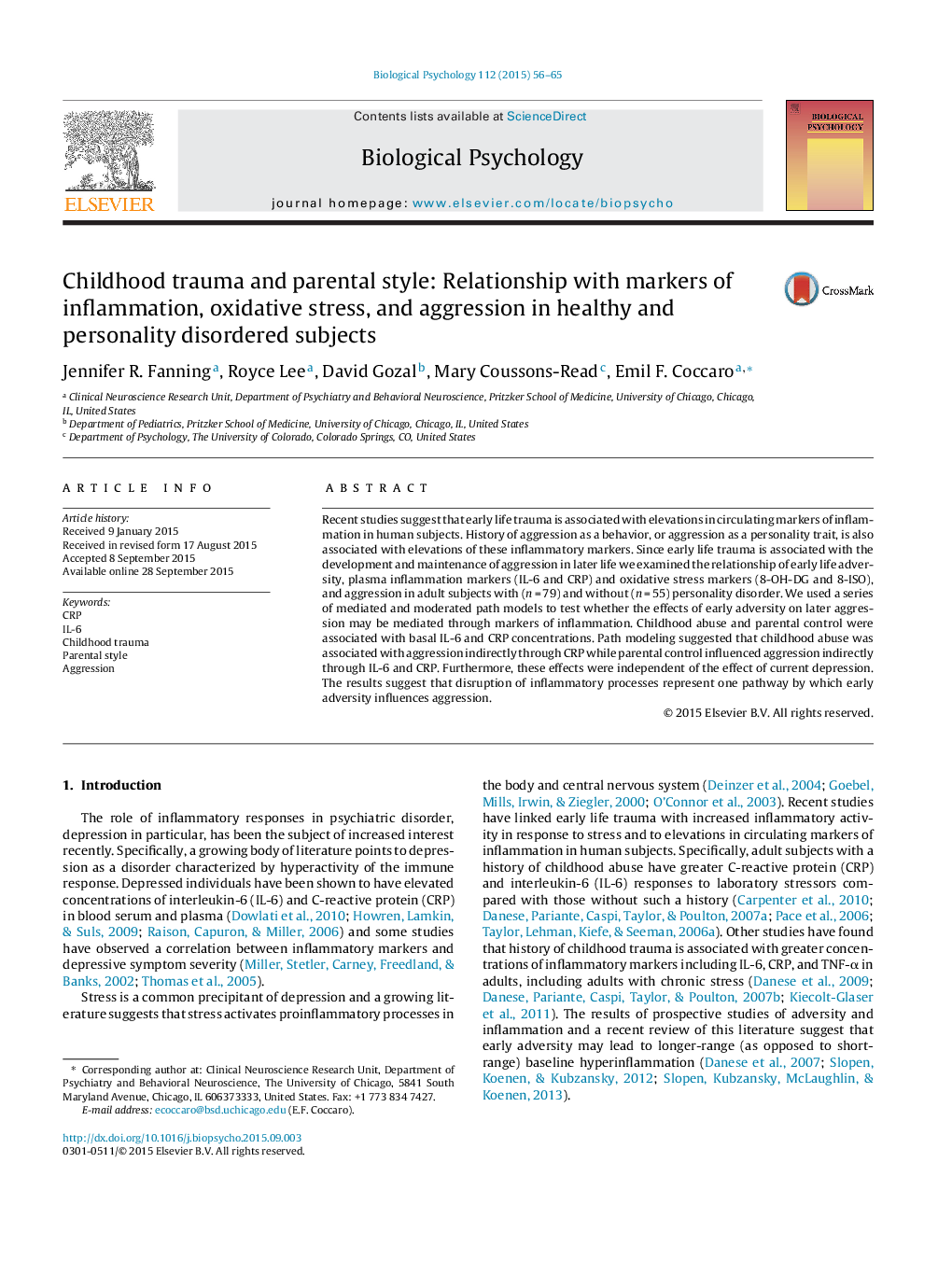| Article ID | Journal | Published Year | Pages | File Type |
|---|---|---|---|---|
| 920777 | Biological Psychology | 2015 | 10 Pages |
•We examined the role of circulating inflammatory markers as a function of childhood trauma, parental style, and aggression.•Elevated circulating inflammatory markers correlated with trauma and parental style but not after including relevant confounders.•Aggression correlated with circulating inflammatory markers even after including the trauma/parental style and confounding variables into statistical models.
Recent studies suggest that early life trauma is associated with elevations in circulating markers of inflammation in human subjects. History of aggression as a behavior, or aggression as a personality trait, is also associated with elevations of these inflammatory markers. Since early life trauma is associated with the development and maintenance of aggression in later life we examined the relationship of early life adversity, plasma inflammation markers (IL-6 and CRP) and oxidative stress markers (8-OH-DG and 8-ISO), and aggression in adult subjects with (n = 79) and without (n = 55) personality disorder. We used a series of mediated and moderated path models to test whether the effects of early adversity on later aggression may be mediated through markers of inflammation. Childhood abuse and parental control were associated with basal IL-6 and CRP concentrations. Path modeling suggested that childhood abuse was associated with aggression indirectly through CRP while parental control influenced aggression indirectly through IL-6 and CRP. Furthermore, these effects were independent of the effect of current depression. The results suggest that disruption of inflammatory processes represent one pathway by which early adversity influences aggression.
